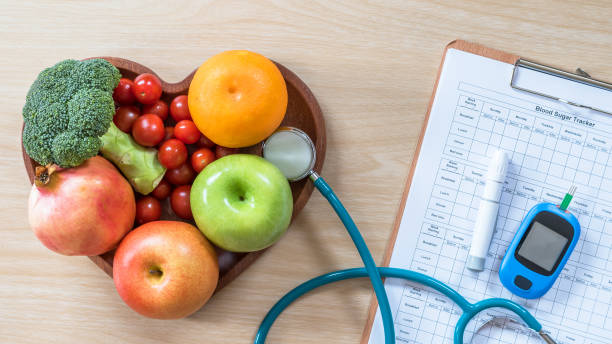Mothers’ training can matter for diabetic youngsters

Diabetes monitor, Cholesterol diet and healthy food eating nutritional concept with clean fruits in nutritionist's heart dish and patient's blood sugar control record with diabetic measuring tool kit
Family history can count for the health of diabetic youngsters, in line with researchers in Denmark who observed that young sufferers’ blood sugar control was related to the level of education their mothers had attained. “One of the first reasons that comes to mind is that unequal access to healthcare can be an aspect linking own family heritage and blood sugar ranges,” said have a look at chief Nick Nielsen from a Department of Economics at the University of Copenhagen.
But reading humans in Denmark, which has regularly occurring tax-financed access to healthcare, helped cancel out that thing, he advised Reuters Health. Nielsen and his crew analyzed information on 4,079 kids who had been diagnosed with type 1 diabetes between 2000 and 2013. In type 1 diabetes, the rarer form of the sickness, the body’s immune system mistakenly kills the beta cells in the pancreas that make and release the hormone insulin. Type 1 diabetes requires treatment with insulin injections.
The youngsters had been divided into 4 groups, depending on their mothers’ highest level of education. Altogether, 1,643 had moms who hadn’t long passed to college, 1,548 had mothers who finished vocational or 2-12 months university, 695 had mothers with a bachelor’s diploma, and 193 had mothers with a master’s degree. The researchers determined that stages of so-referred to as glycated hemoglobin, or HbA1c, HbA1c, which displays blood sugar manipulation over the previous three months, went down as mothers’ education level went up. The everyday variety for HbA1c is 4.Three% to 5%.8% – however, that range is tough to achieve in people with diabetes. The American Diabetes Association recommends that children with type 1 diabetes attempt to live under 7.Five%. In the modern look at, HbA1c degrees averaged 7.6% in children of mothers with advanced ranges, 7. Nine percent n children of girls with bachelor’s degrees, eight 2% of children whose mothers graduated from vocational or 2-12 months colleges, and 8.Four percent in children of moms with no more than a high school degree.
Children of better-educated moms also had lower rates of a dangerous circumstance called diabetic ketoacidosis and decreased costs of dangerously low blood sugar that could result from overdoses of insulin. Differences in how often youngsters’ blood sugar levels were checked during the day probably explained a big part of the disparities, the authors say. Children of the most extraordinarily knowledgeable mothers had the greatest variety of everyday blood glucose tests, while people with high school training or less had the bottom. Other ability reasons, the authors write, are that moms with higher training can be more able to support managing diabetes and could help their children on how to control their illness. Links between patient schooling or socioeconomic status and compliance with treatment have been proven in older studies, too.
The take a look at is limited as it became not viable to get information on all mothers and their children inside the registries. Still, the researchers write in Diabetes Care, “For clinicians and policymakers, our results endorse that it may be useful to provide greater support to the least privileged children all through the first few years of diabetes.”
It could also be beneficial if healthcare specialists help form affected person groups, Nielsen says. “In those organizations, households ought to help each other out of doors the clinic. We suppose that this increased decentralization may be valuable because of the significance of peer guidance and “normal” advice and information sharing, Nielsen brought up.















